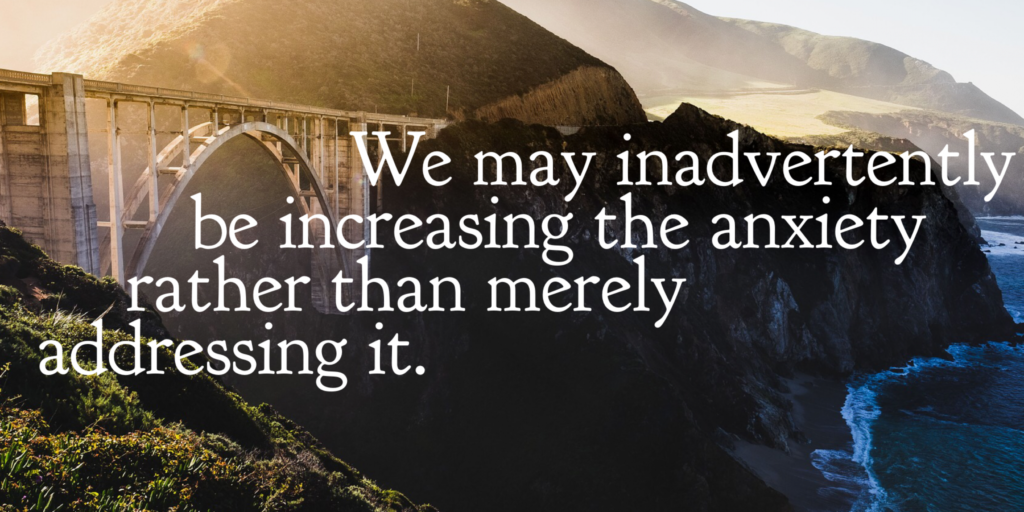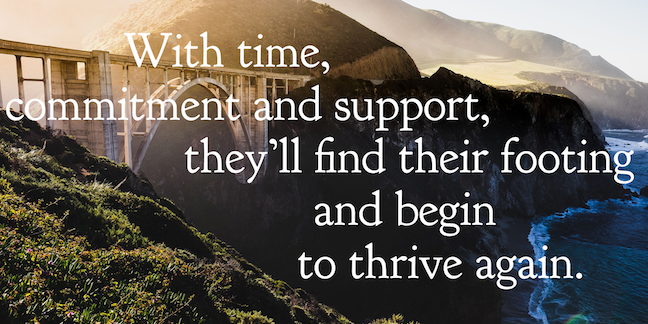
Of the adult MKs I speak with, a majority assert that the hardest transition they’ve had to navigate is the one between high school and college in their passport culture.
They’re right. It can be hard.
But I sometimes wonder if our attempts to prepare MKs for that leap might actually increase some of the angst surrounding it.
Don’t get me wrong—I highly value and promote seminars for MKs who are seniors heading into adult life, and I advocate for the investment of time and finances in transition retreats like those offered by Barnabas, Interaction and Outreach Canada.

But I also realize that in our efforts to equip our MKs for some of the inevitable challenges of entering independent adulthood while navigating cultural change, we may inadvertently be intensifying their anxiety rather than merely addressing it.
For years, we’ve been prefacing our sessions for transitioning MKs with something that sounds an awful lot like:
- This will be the most difficult phase of your life so far.
- You’re going to feel completely inept and misunderstood.
- Making friends is going to be so hard and tedious.
I’ll admit that in my own sessions, I too may have unintentionally sent a purely gloom-and-doom message to teens who look like they’re ready to take on the world, but often harbor hidden fears and insufficiencies.
As a broader community (teachers, parents and mentors of MKs), it’s incumbent on us to equally prepare and empower MKs. To warn them and inspire them. To caution them and excite them.
To equip them for the sticking points they may face in this new phase of life, but also to convince them that by utilizing the strengths and insights they’ve already developed, they will find their way through the initial rough waters to a calmer surface beyond transition pangs.

With some care and attention to messaging, the sentences I mentioned above can be hope-tinged and not simply scary.
- Will this transition have tough spots? Yes. Will it be the most difficult phase of your life so far? Maybe. Maybe not. But what you learn in advance about yourself and the culture you’re entering will ease the transition in significant ways.
- There may be some areas in which you initially feel inept and misunderstood, but I assure you that there are many in which you’ll naturally do great. Your MK-ness is not a handicap, it’s an alternative framework with its own perspective and skillset. As a cultural chameleon with proven adaptive skills, you’ll figure out how to bend and learn and live in your new world.
- Making friends may feel hard and tedious at first, but if you enter into relationships the way that other culture does it, applying patience and understanding to the process, the authentic friendships you develop will be entirely worth it.
This is not to say that transitions will automatically go smoothly with proper preparation and appropriate mindsets.
At any age, moving from one world to another will engender its share of challenge and frustration. But these are normal components of any life, and we can apply the same certainties to college transition as we do to all significant changes, whether they be geographical, relational, financial or career-related.
Change happens.
Plan ahead.
Equip yourself.
Proceed wisely.
Learn avidly.
Choose humility.
Celebrate newness.
Acknowledge progress.
Reward growth.
We need to convince the MKs in our care that with education, time, commitment and the support of those who truly know them, they’ll find their footing and begin to thrive again.

So while we’re introducing our MKs to healthy mindsets, transition strategies, relationship models and managing grief (all critical topics!), let’s also be telling them that this Change may not be as horrendous as the worst-case-scenarios they’ve heard.
Because though they’ll be leaving a familiar universe to enter another, they are uniquely equipped to make that transition.
They are MKs.
They’re wise
They’re flexible
They’re culturally sensitive
They’re socially intuitive
And if they choose to use the cultural tool kit their life abroad has given them—with awareness and patience and effort and an abiding faith in the God who knows them and will sustain them as they enter the murky water in the space between worlds—this looming transition may well go more smoothly than they ever thought it could.
This is a message that equips and motivates. That instructs and strengthens. That acknowledges challenge and imparts crucial hope.
![]()
Please join the conversation!
- Contribute your thoughts in the comments section below
- Use the social media links to Like and Share this article
- Many of these articles are now available in podcast form. Simply search for “Pondering Purple” on your usual pod platforms, or click this link to be taken to its host page.
- To subscribe to this blog, email michelesblog@gmail.com and write “subscribe” in the subject line
- Pick up Of Stillness and Storm (my novel about a missionary calling gone awry) on Amazon


Rachel
Since the difficulty a TCK may have can vary so broadly from one to another, it’s certainly a challenge to create any kind of “catch-all” safety net or teaching program… But I think some relatively minor tweaks to phrasing could shift the tone significantly.
Instead of “This will be the most difficult phase of your life so far,” saying instead, “Feeling like this is the most difficult or painful phase of your life so far doesn’t mean you’re failing at it. The best way past this is through, so remember you’re not alone, and you’ve got the skills to keep going when those feelings seem overwhelming.”
Alheri
“ Your MK-ness is not a handicap, it’s an alternative framework with its own perspective and skillset. As a cultural chameleon with proven adaptive skills, you’ll figure out how to bend and learn and live in your new world.”
As an adult I see this now. At the time I could only see how different I was, how foreign my new life was.
Elaine Schlabach
Well written! Yes, I would agree–as a TCK and also a mother of three TCKS–that we must balance the information we give about transitions, and how we approach them. In our family, all three of our sons (two now adults, the last one 17) have made the transition during their senior year of high school instead of during their freshman year of college. Being able to send them to a small town in the US, where amazing host families have taken our sons under their wing, has been a crucial part of them becoming adults and dealing with the swirl of culture around our boys. For our youngest, it is a highly anticipated season, and he knows that his brothers had adjustments but also tons of fun.